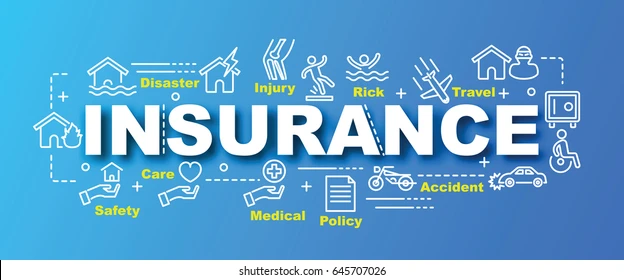The decision to purchase whole life insurance rather than term insurance is a personal choice and depends upon your finances, age, health and goals for your future to achieve.
Whole life policies cost significantly more than term insurance policies for the same amount of coverage. Although that cost is guaranteed to remain level, your main concern should be with having adequate coverage when you need it.
The term insurance policies seems cheaper to buy, but the consumer will end up paying lot of premium. If someone purchased a term insurance policy to cover a certain amount of time and would not need to renew the term, that is a perfect insurance plan for that person.
If you keep the term policy and wish to renew it again and again, that will not be a good idea. Once your term insurance is renewed for the next term, most of the times the premium increases rapidly. The more you grow older, the more premium you have to pay.
Once you have the whole life coverage in place. It cannot be revoked, reduced or cancelled by the insurance company except in cases of non-payment or fraud. This makes whole life insurance appealing because it provides a degree of certainty. The advantage of permanent insurance is that your health at the time the policy is issued will dictate the terms of your insurance for the rest of your life.
Here are some advantages of whole life insurance:
- Protection for life – Whole life plan will never expire or go down in value.
- Level Premiums – The rate you pay for your policy will never increase.
- Cash Value – A portion of your premium builds cash value which can be borrowed if needed.
- Guaranteed Death Benefit – The amount your beneficiary receive is guaranteed.
In the realm of insurance, the perpetual debate between Whole Life and Term Insurance persists, leaving individuals pondering which avenue is the best fit for their unique needs. The decision is not a one-size-fits-all scenario; it hinges on various factors, such as financial goals, risk tolerance, and long-term objectives. This comprehensive guide aims to unravel the complexities surrounding Whole Life and Term Insurance, empowering you to make an informed choice that aligns with your financial aspirations.
Understanding Whole Life Insurance
Whole Life Insurance, as the name suggests, provides coverage for the entirety of an individual’s life. One of its distinctive features is the cash value component, which accumulates over time. A portion of the premium paid goes into this cash value, functioning as a form of savings or investment. This cash value grows tax-deferred, and policyholders can access it during their lifetime. This aspect sets Whole Life Insurance apart, offering a blend of protection and a financial instrument that can be tapped into when needed.
Pros and Cons of Whole Life Insurance
Pros:
- Lifetime Coverage: The primary advantage of Whole Life Insurance is the lifelong coverage it ensures. As long as premiums are paid, the policy remains in force, providing a sense of security and peace of mind to policyholders and their beneficiaries.
- Cash Value Growth: The cash value component serves as a savings vehicle. Over time, it accumulates interest, fostering a form of forced savings. Policyholders can borrow against this cash value or even surrender the policy for its cash value.
- Stable Premiums: Whole Life Insurance typically comes with fixed premiums, offering predictability in financial planning. This stability can be particularly appealing for those who prefer consistency in their budgeting.
Cons:
- Higher Premiums: The stability of premiums comes at a cost – Whole Life Insurance tends to have higher premiums compared to Term Insurance. This can be a deterrent for individuals seeking more affordable coverage.
- Complexity: The combination of insurance and investment features makes Whole Life policies more intricate than Term policies. Understanding the nuances requires a level of financial literacy that not all policyholders possess.
- Opportunity Cost: While the cash value component can be advantageous, the returns may not match those of alternative investments. This opportunity cost is a crucial consideration for individuals with a keen eye on maximizing their investment returns.
Decoding Term Insurance
Term Insurance, on the other hand, offers straightforward coverage for a specified term, typically ranging from 10 to 30 years. Unlike Whole Life Insurance, Term policies do not accumulate cash value. Instead, they focus on providing a death benefit to beneficiaries if the policyholder passes away during the term.
Pros and Cons of Term Insurance
Pros:
- Affordability: Term Insurance is renowned for its affordability. The absence of a cash value component allows for lower premiums, making it an attractive option for individuals seeking high coverage at a lower cost.
- Flexibility: Term Insurance is versatile and can be tailored to specific needs and durations. Individuals can choose a term that aligns with their financial responsibilities, such as mortgage payments or children’s education.
- Pure Protection: For those primarily seeking life coverage without the complexities of an investment component, Term Insurance provides straightforward protection. It serves its purpose – to financially safeguard loved ones in the event of the policyholder’s demise.
Cons:
- Temporary Coverage: The chief drawback of Term Insurance is its temporary nature. Once the term expires, policyholders need to renew the coverage, often at higher premiums. If health circumstances change, obtaining affordable coverage in the future may become challenging.
- No Cash Value: Unlike Whole Life Insurance, Term policies do not accrue a cash value. For individuals looking for a combination of protection and savings, the absence of this feature can be a deterrent.
- Use It or Lose It: If the policyholder outlives the term, no benefits are paid out. This “use it or lose it” aspect contrasts with Whole Life Insurance, where the cash value can be accessed during the policyholder’s lifetime.
Choosing the Right Fit
Making the decision between Whole Life and Term Insurance necessitates a thorough understanding of personal financial goals and risk tolerance. Consider the following factors to guide your choice:
- Financial Goals: If your objective extends beyond pure life coverage and includes a desire for a savings component and potential investment growth, Whole Life Insurance may align better with your goals. However, if your priority is straightforward and affordable protection, Term Insurance could be the optimal choice.
- Budgetary Constraints: Assess your current and future financial capabilities. Whole Life Insurance comes with higher premiums, so it’s crucial to ensure that the financial commitment is sustainable. Term Insurance, with its lower premiums, can be more budget-friendly for many.
- Investment Savvy: Evaluate your comfort level and experience with investments. If you prefer a hassle-free approach to life insurance and are wary of navigating the complexities of investment within a policy, Term Insurance might be the simpler option. On the other hand, if you view your insurance as a long-term financial strategy, Whole Life Insurance may be more appealing.
- Long-Term Commitment: Consider your willingness to commit to a long-term policy. Whole Life Insurance is designed for a lifetime, and surrendering the policy prematurely may result in a financial loss. Term Insurance, with its defined durations, offers flexibility for those who may not want a lifelong commitment.
Conclusion
In the Whole Life vs. Term Insurance debate, there’s no universal answer. The best choice hinges on your unique circumstances, preferences, and financial aspirations. Whole Life Insurance provides a comprehensive package of protection and savings, ideal for those with a long-term perspective and an appreciation for the dual benefits.







